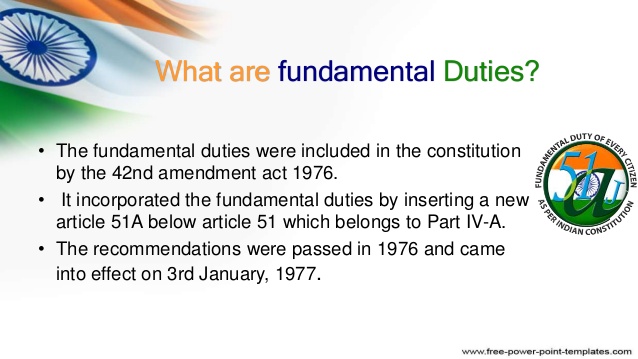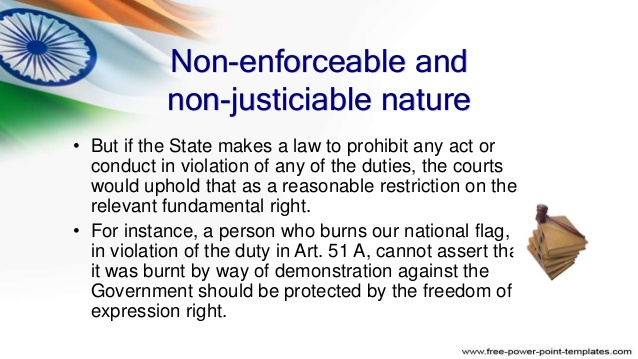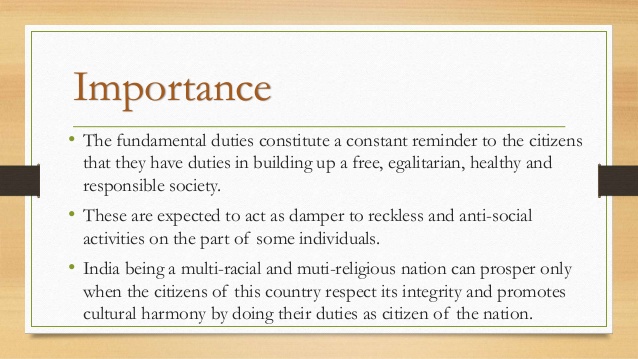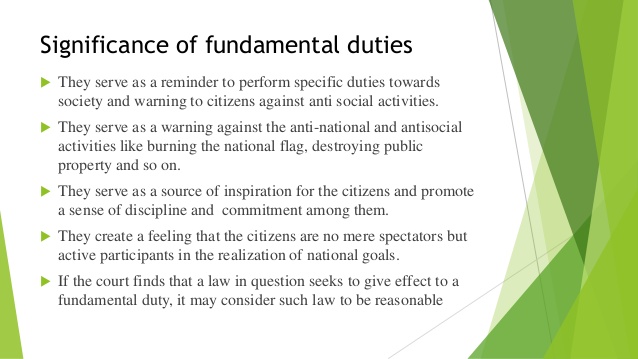Relevance: Prelims: Polity: Indian Constitution
- The Fundamental Duties of citizens were added to the Constitution by the 42nd Amendment in 1976, upon the recommendations of the Swaran Singh Committee.
- It was on the Soviet model that fundamental duties were added.
- They were originally ten in number, the Fundamental Duties were increased to eleven by the 86th Amendment in 2002.
- They are mentioned in the Article 51A, Part IVA of the Indian Constitution.
- The Fundamental Duties noted in the constitution are as follows:
It shall be the duty of every citizen of India —
- to abide by the constitution and respect its ideal and institutions;
- to cherish and follow the noble ideals which inspired our national struggle for freedom;
- to uphold and protect the sovereignty, unity and integrity of India;
- to defend the country and render national service when called upon to do so;
- to promote harmony and the spirit of common brotherhood amongst all the people of India transcending religious, linguistic and regional diversities, to renounce practices derogatory to the dignity of women;
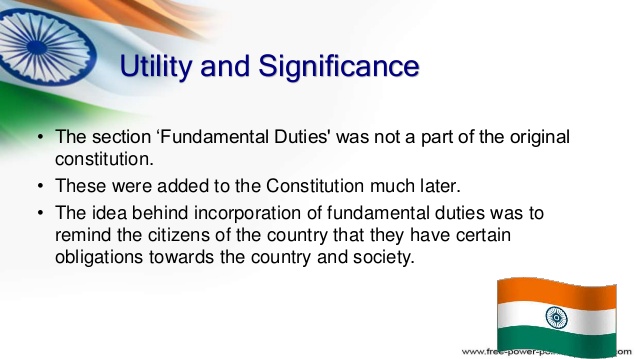
- to value and preserve the rich heritage of our composite culture;
- to protect and improve the natural environment including forests, lakes, rivers, and wild-life and to have compassion for living creatures;
- to develop the scientific temper, humanism and the spirit of inquiry and reform;
- to safeguard public property and to abjure violence;
- to strive towards excellence in all spheres of individual and collective activity, so that the nation constantly rises to higher levels of endeavor and achievement.
- Who is a parent or guardian, to provide opportunities for education to his child, or as the case may be, ward between the age of 6 to 14 years. (added by 86th amendment act)
For more such notes, Articles, News & Views Join our Telegram Channel.
Click the link below to see the details about the UPSC –Civils courses offered by Triumph IAS. https://triumphias.com/pages-all-courses.php


